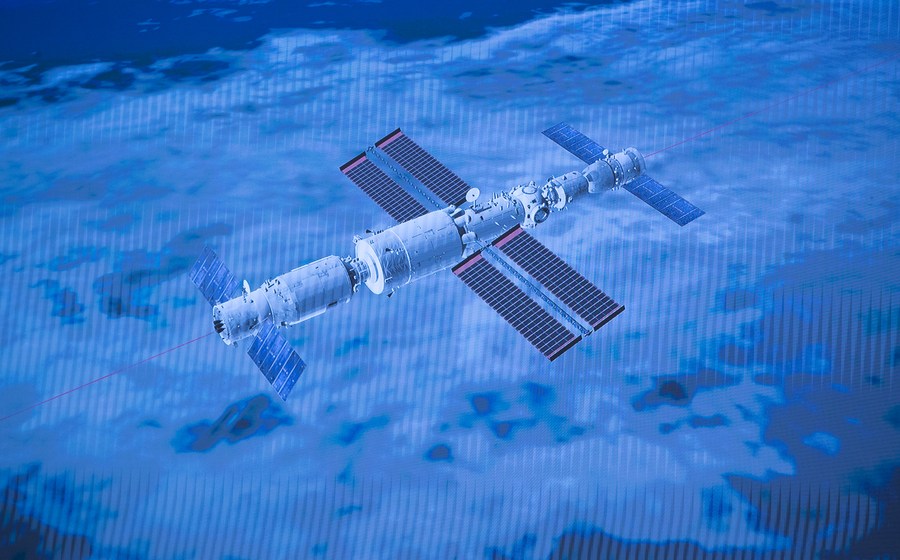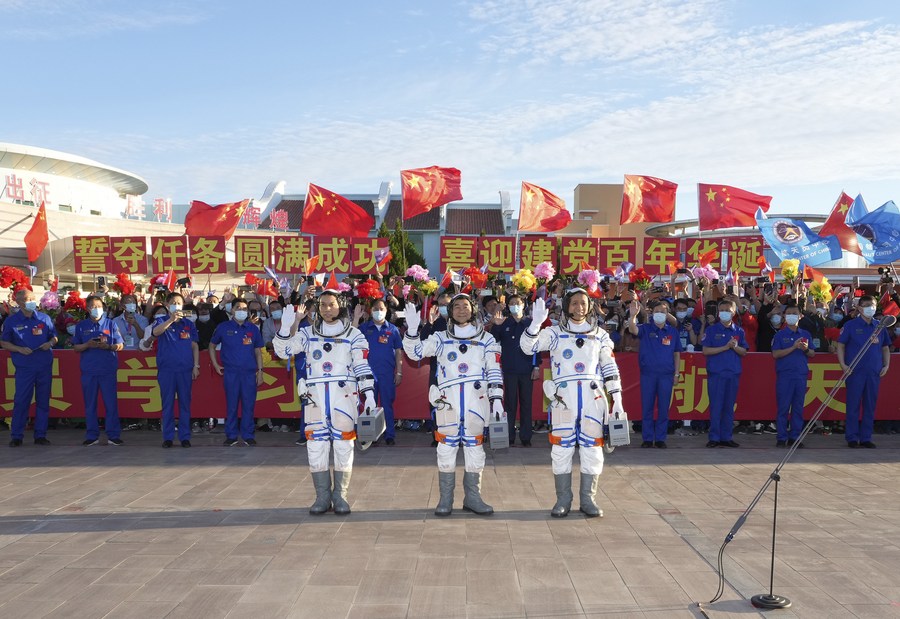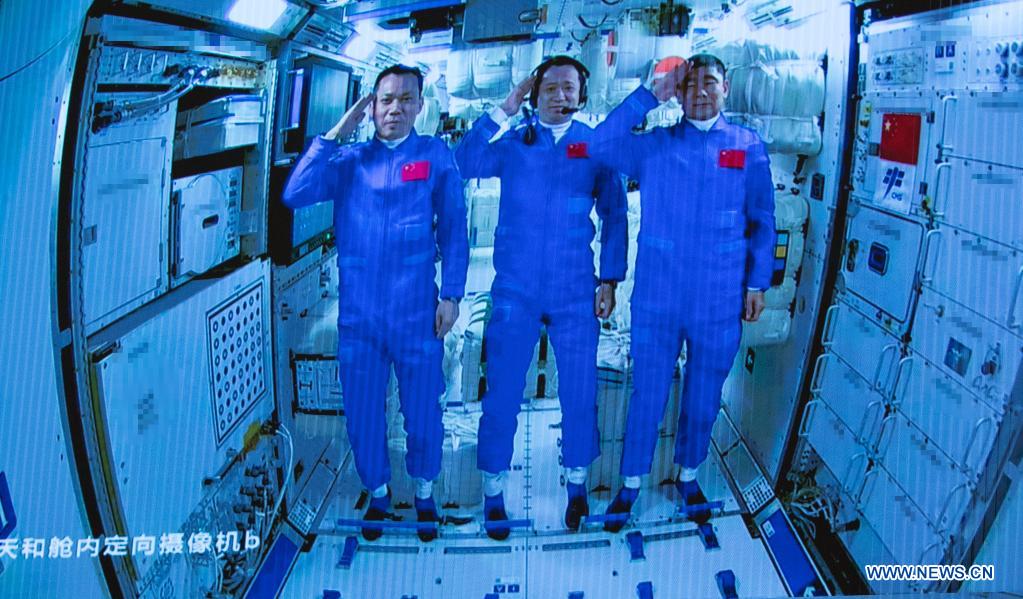

After the successful launchof the Shenzhou XII mannedspaceship on June 17, anEnglish word "taikonaut" cameinto people's view. Chineseastronauts have got theirexclusive English name owing toyears of development in China'saerospace.
6月17日,神舟十二号载人飞船成功发射后,一个英文单词“taikonaut”进入世人的视野。中国航天人用多年的努力,创造了一个专属英文名!

▲ Screen image captured at Beijing Aerospace Control Center in Beijing, capital of China, June 17 shows China's Shenzhou-12 manned spaceship having successfully docked with the space station core module Tianhe. Photo source: Xinhua News Agency
"Taikonaut" is a hybridword composed of pinyin ofthe Chinese term 太空 (tài kōng)which means space, and "naut,"a Greek word which meanssailor. It was first put forwardby Chiew Lee Yih, a ChineseMalaysian, who used it for thefirst time in1988. This kind of wordformation is rare in English,though. But throughcongratulations from theEuropean Space Agency andthe Roscosmos StateCorporation for Space Activitiesto China's National SpaceAgency, and the reports ofmany overseas media outlets,we find that the word isgetting widely accepted by theworld. The word "taikonaut"has even been officiallyincluded in the OxfordDictionary.
“Taikonaut”是由中文“太空”的拼音和希腊词naut混成的拼缀词。前半部分“taiko”来自中文“太空”的拼音,后半部分“naut”在希腊语中意思为水手、船员。该词最早由马来西亚华人赵里昱于1998年提出。在英语中,“拼音+英语”拼合起来的单词很罕见。但欧洲航天局和俄罗斯联邦航天局对中国国家航天局的祝贺,和许多国外媒体对神舟十二号的报道中,却都使用了这个词。显然,这个词正在被越来越多的人所接受。目前,taikonaut一词也已被牛津词典正式收录。

▲ Astronauts Nie Haisheng (R), Liu Boming (C) and Tang Hongbo wave during a see-off ceremony for Chinese astronauts of the Shenzhou-12 manned space mission at the Jiuquan Satellite Launch Center in northwest China, June 17. Photo source: Xinhua News Agency
The three countries withmanned space programs,America, China and Russia,each have a unique Englishname for their astronauts. TheAmericans use the word"astronaut" which comes fromthe Greek words "astro"meaning "star" and "naut"meaning "sailor," while theRussian "cosmonaut" (kosmonavtin Russian) comes from Greek"kosmos" meaning "universe"and "navt" from the Russianword aeronavt. For China, it'staikonaut.
作为仅有的三个独立掌握载人航天技术的国家,美国、俄罗斯和中国航天员的英文称呼各不相同。美国航天员叫做“astronaut”,这个词由希腊词astro和naut组成;俄罗斯航天员被称为“cosmonaut”,该词由希腊词kosmos和俄罗斯词语aeronavt中的navt组成。而中国航天员,则叫做taikonaut。

▲ Screen image captured at Beijing Aerospace Control Center in Beijing, capital of China, June 17 shows three Chinese astronauts onboard the Shenzhou-12 spaceship saluting after entering the space station core module Tianhe. Photo source: Xinhua News Agency
Taikonaut is not just aword. It mirrors the greatachievements of China'saerospace industry. This year inparticular, China has had severalmajor successes such as thesuccessful landing of the roveron Mars, taking its first ever"selfie" of Mars, the successfullaunch of the Shenzhou XIImission, and the mission's firstspacewalk. We are lookingforward to more such words inEnglish that showcase theincreasing confidence of theChinese people.
taikonaut不仅仅是一个词,它反映了中国航天产业的巨大发展。尤其是今年,中国的航天大事更是一个接着一个。从" 天问一号 " 火星登陆器成功着陆火星,到" 天问一号 " 探测器拍摄到的第一张高清火星影像图,再到神舟十二号载人飞船的成功发射及首次出舱活动。我们也期待着,未来会有更多类似的英文出现,展现越来越自信的中国人民的风采。
(Edited by NIE YANG)